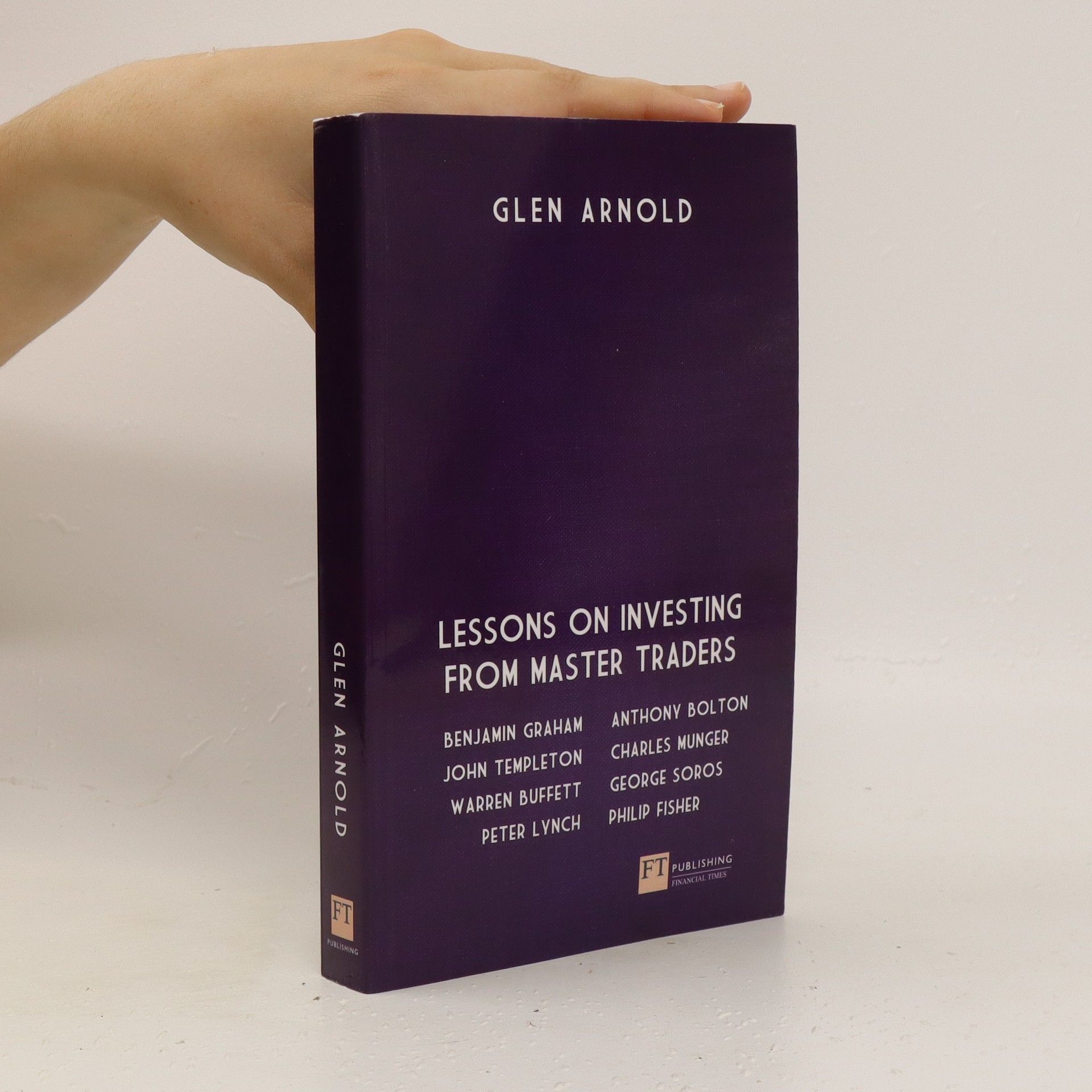In this second volume, the story continues and we trace Warren Buffett's journey to his first $1bn.
Glen Arnold Boeken
Glen Arnold is een gerespecteerde autoriteit op het gebied van financiën en beleggen, die zijn uitgebreide kennis en praktische ervaring in zijn schrijven toepast. Zijn werken richten zich op een diepgaand begrip van de financiële markten en bieden lezers waardevolle inzichten in de wereld van investeringen. Arnold's aanpak is gebaseerd op solide academische principes en blijft tegelijkertijd toegankelijk voor een breed publiek.






This text on corporate financial management covers topics such as project appraisal, risk and project appraisal, equity capital, debt finance, value-based management, capital structure, and dividend policy
The great investors: lessons on investing from master traders
- 406bladzijden
- 15 uur lezen
The Great Investors narrates the journeys of remarkable figures in finance: John Templeton, George Soros, Warren Buffett, Benjamin Graham, Philip Fisher, Peter Lynch, Anthony Bolton, and John Neff. This insightful exploration is beneficial for everyone, from novice investors to seasoned professionals. Readers will discover effective trading philosophies and strategies, including the importance of being a business analyst rather than merely a security analyst, conducting thorough research, and maintaining a broad awareness of social, economic, and political contexts. The book emphasizes the need to control emotions to avoid market-induced decisions and to remain consistent in one’s investment approach, even during challenging years. It encourages simplicity in portfolio management, learning from past investments, and cultivating self-reliance by trusting one’s own judgment rather than following the crowd. Additionally, it highlights the significance of taking reasonable risks. Glen Arnold, a businessman, investor, and finance professor at Salford University, aims to delve into the traits and skills that enable these investment masters to accumulate wealth through experience and rational decision-making.
This book provides an up-to-date picture of recent theoretical re-evaluations, exploring the theory underpinning corporate finance and the gap between academic finance theory and real-world practice
This guide serves as a comprehensive introduction to successful stock market investing. It starts with the fundamentals of why companies seek investors and outlines the roles of investors. The author walks you through the practical aspects of buying and selling shares, detailing various investment vehicles and offering strategies for selecting companies, analyzing accounts, managing a portfolio, and measuring performance and risk. The thoroughly updated second edition covers how financial markets operate and encourages readers to act on their own judgments. New sections address online investing, tools, and resources, including screenshots and virtual portfolios, along with updates on tax rates, ISA allowances, and capital gains tax. A jargon-busting glossary clarifies investment terminology, while recent articles and statistics provide context and examples. The guide demystifies the investment process, illustrating how to buy shares and explore diverse financial securities like bonds and ETFs. It challenges the notion that only the wealthy can invest successfully, empowering individuals to build profitable portfolios independently. Key topics include understanding stock markets, analyzing companies, managing portfolios, and investor protection, making this an essential resource for anyone looking to navigate the world of investing.
Focusing on Warren Buffett's investment strategies, this guide explores how he transformed Berkshire Hathaway into a highly respected company. It delves into Buffett's principles of value investing, his unique approach to business management, and the key decisions that shaped the company's success. Readers will gain insights into Buffett's philosophy, his emphasis on ethical practices, and the importance of long-term thinking in achieving financial success. This comprehensive resource serves as an essential tool for aspiring investors and business leaders.
In this third volume of The Deals of Warren Buffett, we trace Warren Buffett's journey as he made Berkshire Hathaway the largest company in America.
Průvodce Financial Times. Kniha Jak vybírat podhodnocené akcie nabízí soubor rad, v nichž se principy hodnotového a růstového investování snoubí s taktikami nejslavnějších světových investorů. Představí základní pojmy i praktické metody, ověřené slavnými investory – nikové investování podle Petra Lynche, investování do nízkého P/E podle Johna Neffa, moderní analýzu cenných papírů podle Benjamina Grahama a řadu dalších.
Die Deals von Warren Buffett - Vol. 1
Die ersten 100 Millionen Dollar
In diesem Buch analysiert Glen Arnold Warren Buffetts Entwicklung seiner Investmentphilosophie von 1941 bis 1978. Er erklärt Buffetts Denkweise und die Lektionen, die aus Erfolgen und Misserfolgen stammen. Am Ende jedes Kapitels bietet Arnold wertvolle Tipps, um Anlegern zu helfen, ihre eigenen Entscheidungen zu optimieren.
